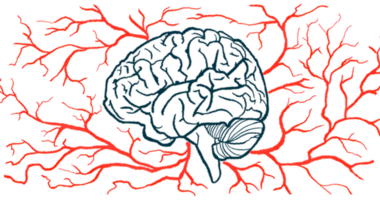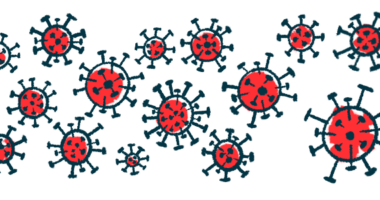‘Inverse vaccine’ approach lowers disease in MS mouse model
ANK-700 is being tested in early MS clinical trials

Note: This story was updated Sept. 15, 2023, to clarify ANK-700 was developed based on the preclinical work described in the study.
An “inverse vaccine” that’s designed to teach the immune system not to attack a specific target, effectively reduced disease activity in mouse models of multiple sclerosis (MS), a study reports.
An inverse vaccine using this approach called ANK-700 is being tested in early MS clinical trials.
The study, “Synthetically glycosylated antigens for the antigen-specific suppression of established immune responses,” was published in Nature Biomedical Engineering. The work was funded by ANK-700’s developer Anokion.
The immune system is normally responsible for defending the body against infectious invaders. The job is usually simple — attack anything that’s not part of the body and leave alone anything that is.
The ability of immune cells to recognize the body’s own tissues and not attack them is called “immune tolerance.” This process is faulty in autoimmune diseases like MS and the immune system begins targeting molecules that are part of the body.
MS is caused by the immune system attacking the myelin sheath, a fatty substance that wraps around nerve fibers in the brain and spinal cord to help them send electrical signals, the resulting neurological damage giving rise to disease symptoms.
Inverse vaccines and immune tolerance
An inverse vaccine activates immune tolerance to teach the immune system not to attack a specific target, basically the opposite of how a traditional vaccine works in priming the immune system.
Scientists previously discovered immune tolerance against a target could be achieved by tagging the target with a sugar molecule called N-acetylgalactosamine or pGal. This molecule prompts the target to be taken up by regulatory immune cells that activate tolerance processes in other immune cells.
“The idea is that we can attach any molecule we want to pGal and it will teach the immune system to tolerate it. Rather than rev up immunity as with a vaccine, we can tamp it down in a very specific way with an inverse vaccine,” Jeffrey Hubbell, PhD, co-author of the study at the University of Chicago, said in a news release.
The researchers have shown that this approach could help prevent autoimmune diseases from developing in animal models. In this new study, they tested it in several models of existing autoimmune disease.
“In the past, we showed that we could use this approach to prevent autoimmunity. But what is so exciting about this work is that we have shown that we can treat diseases like multiple sclerosis after there is already ongoing inflammation, which is more useful in a real-world context,” Hubbell said.
In the past, we showed that we could use this approach to prevent autoimmunity. But what is so exciting about this work is that we have shown that we can treat diseases like multiple sclerosis after there is already ongoing inflammation, which is more useful in a real-world context.
The researchers tested the inverse vaccine technique in two mouse models of experimental autoimmune encephalitis (EAE), which is commonly used to study MS. They used one EAE model that reflected chronic MS activity and another where mice have flares, or relapses, followed by periods of remission. In both models, an inverse vaccine significantly reduced disease activity.
“This offers strong support for the clinical use of pGal–antigen therapy in the treatment of autoimmune disease when prophylactic treatment is not possible,” the researchers wrote.
For the tests, the researchers used an inverse vaccine designed to induce tolerance against MOG (myelin oligodendrocyte protein), a part of the myelin sheath that’s attacked in MS.
ANK-700 is an experimental inverse vaccine for MS aimed to induce tolerance and reduce disease activity, that similarly contains a modified piece of myelin.
ANK-700 being tested in clinical trial
Anokion is sponsoring an ongoing Phase 1 study called MoveS-it (NCT04602390) to test ANK-700 in people with MS. In the first part, participants are being given one infusion of ANK-700 at one of three doses. The second part of the study compares multiple ANK-700 doses against a placebo. The trial’s main goal is to assess the vaccine’s safety.
“There are no clinically approved inverse vaccines yet, but we’re incredibly excited about moving this technology forward,” Hubbell said.
All available treatments for MS work by broadly suppressing the immune system’s activity. Theoretically, a treatment that specifically induces tolerance could provide disease control without impairing the immune system’s normal ability to defend the body against infections.
“These treatments can be very effective, but you’re also blocking the immune responses necessary to fight off infections and so there are a lot of side effects,” Hubbell said. “If we could treat patients with an inverse vaccine instead, it could be much more specific and lead to fewer side effects.”






